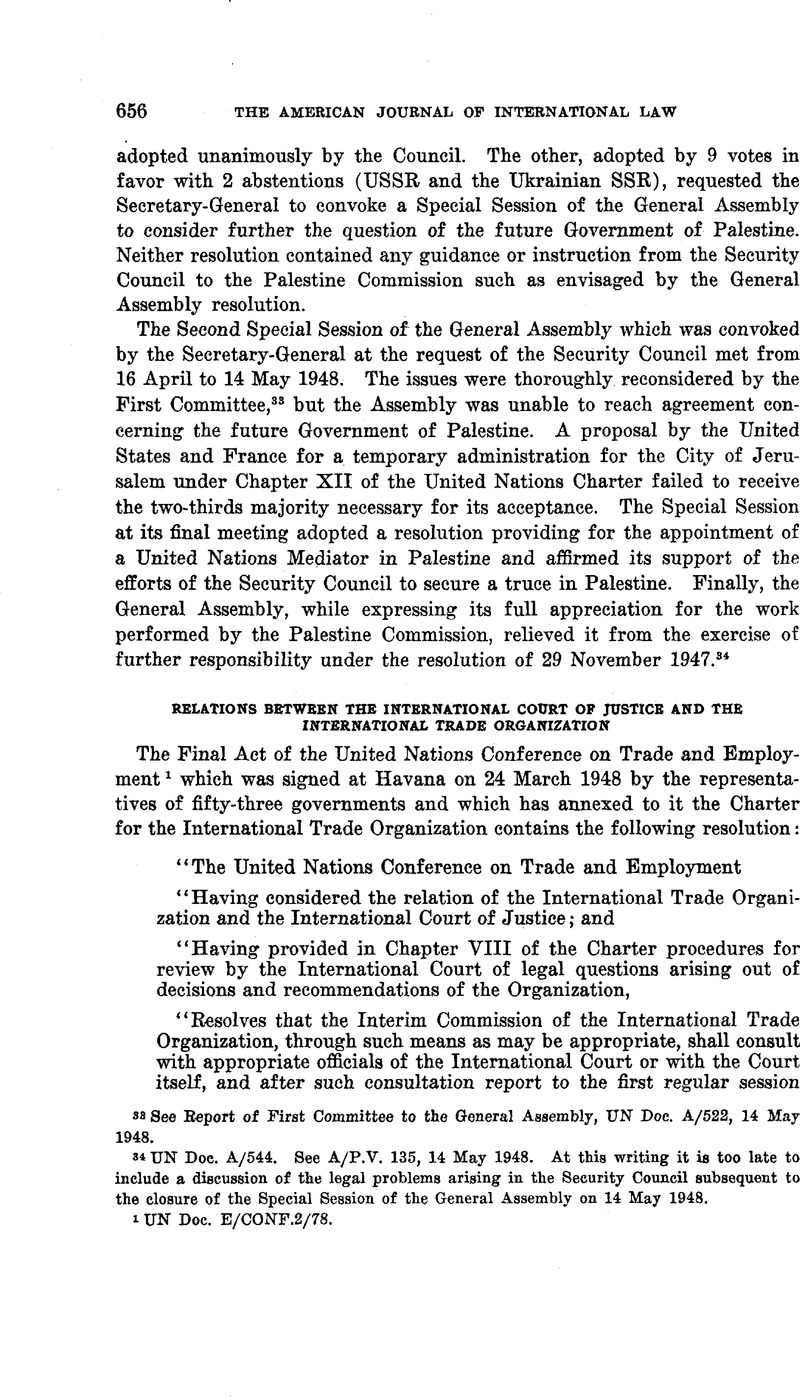No CrossRef data available.
Published online by Cambridge University Press: 20 April 2017

1 UN Doc. E/CONF.2/78.
2 The Economic and Social Council of the United Nations set up a Preparatory Committee of eighteen members to prepare an agenda for the Conference. The Preparatory Committee held its first session at London in October and November 1946 and its second session at Geneva from April to September 1947.
3 Annex N to the Charter provides a simplified voting procedure for the adoption of amendments to the Charter arising out of the resolution.
4 The Suggested Charter is contained in UN Doc. E/PC/T/33, the Eeport of the First Session of the Preparatory Committee, pp. 52–67.
5 Article 76.
6 Article 30.
7 UN Doc. E/PC/T/W.233.
8 P. 26 of UN Doc. E/PC/T/W.210/Rev.l.
9 In this connection a proposal was advanced to establish as one of the organs of the Organization a Claims Board composed of one-half legal and one-half economic experts (UN Doc. E/PC/T/W.248). This proposal was opposed by most governments principally on the grounds that it would complicate the workings of the various organs of the Organization and that the system from which it was derived, namely that of administrative tribunals within states, operated within the framework of well-established and administered legal codes, which were non-existent in the international sphere.
10 P. 53 of the Report of the Second Session of the Preparatory Committee–UN Doc. E/PC/T/186.
11 Same, p. 54.
12 Doc. UN E/CONF.2/C.6/W.73.
13 Same.
14 It has been argued that there is no difficulty in the case of a dispute between two members of the Organization which have accepted the compulsory jurisdiction of the Court subject to the reservation that they might in future agree to resort to other procedures in certain types of cases. Several states have done so. But in the case of two members both of which have accepted the compulsory jurisdiction unconditionally, an obligation under the Statute of the Court would, in view of Article 103 of the Charter of the United Nations, prevail over an obligation under the Charter of the International Trade Organization. Also in the case of a dispute arising under that Charter between a member of that organization which has accepted the compulsory jurisdiction unconditionally and a non-member which has accepted such jurisdiction, the member presumably could not refuse to appear before the Court.
On the other hand, it has been contended with considerable force that the acceptance of compulsory jurisdiction of the Court by two states, even though it is unconditional, is in fact only a declaration of readiness by each state to go to the Court, if the other state summons it. There is no obligation under the Optional Clause of the Court Statute imposed on the two states to take all their disputes to the Court. All that the unconditional acceptance of the Court’s jurisdiction means is that a state cannot refuse to be defendant, though it can refuse to be plaintiff.